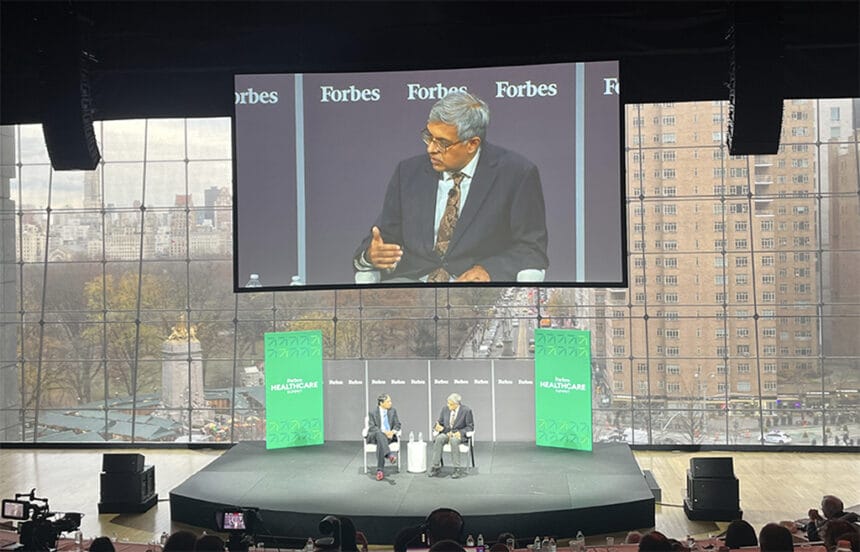NEW YORK: Seven months after the official end of the public health emergency and three years since the start of the COVID-19 pandemic, Dr. Jay Bhattacharya feels vindicated by his early pandemic protocol findings.
The 37-year Stanford professor of health policy was extremely vocal about the need to open schools early on in the pandemic, facing tremendous pushback within the academic community as well as inside government agencies that advocated for closure amid a rise in cases.
Bhattacharya reflected on his and president of The Foundation for Research on Equal Opportunity Avik Roy’s similar findings at the 2023 Forbes Healthcare Summit in New York on Tuesday.
“I was looking at the scientific data coming out and it was striking that it was so hard to get these scientific results in front of the policy decision makers who I think largely were advised by a single viewpoint,” he said, referencing presenting the evidence in the summer of 2020 to former President Donald Trump and his Vice President Mike Pence.
He said it was clear the studies did not register with them.
“I think the reason why that policy failure happened was because the idea that you could have a viewpoint that was different than what the main policy adviser was saying was seen as anathema,” he added. “If you said no, we have to do this a different way, you are going to be anathema. You’re going to be excommunicated.”
Bhattacharya said he was placed on a “blacklist” on X, formerly known as Twitter, for his very first post on the platform encouraging officials to open schools.
Roy, who also serves as a policy editor at Forbes, supported that the evidence at the time to keep schools open, as exhibited in other countries, was overwhelming. The “conventional wisdom” now, he said, is that the country went too far in closing schools in terms of the effects of children’s mental health and the educational impacts of learning loss.
Roy also faced pushback from peers, some who went as far as to proclaim that the publication of his organization’s findings would make him responsible for the deaths of hundreds of thousands of children.
The view inside the government became “completely monolithic,” Bhattacharya added, using its power to suppress conversations both within and outside the government. He argues that leaders of institutions such as the U.S. Food and Drug Administration, the Centers of Disease Control and Prevention and National Institutes of Health need to embrace the idea that they might be wrong and invite dissidents into the conversations as the country looks to a Public Health 2.0.
“It’s during the time when there’s a crisis you most need to have conflicting viewpoints so that you can see what arguments really hold up. Had we won the argument or the policy argument of the schools, our kids now would be in much better shape,” he said. “The problem is the hubris around the idea that one man or one small set of people have the truth.”
Bhattacharya is now involved in the lawsuit Missouri vs. President Joe Biden, which alleges evidentiary records finding that the administration used its power to suppress social media discussion of anyone criticizing its policies on the pandemic. The case will be heard by the U.S. Supreme Court during the 2023-24 term.
This story originally ran on PRWeek.com.







